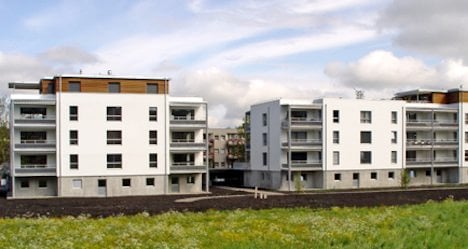The rate remains unchanged from September 3rd, the last time it was fixed.
Three months ago, the rate dropped by 0.25 percentage points to establish a record low level, marking the first change to the reference rate in 15 months, reflecting continued bargain mortgage rates for property owners.
The average mortgage rate for September 30th — upon which the latest reference rate is based — dipped to 2.06 percent from 2.09 percent three months earlier.
However, this was not enough to affect the reference rate, which will remain unchanged unless mortgage rates fall below 1.88 percent or rise above 2.12 percent, the housing office said.
Since September 2008 residential rents have been fixed according to the rates set nationally by the BWO four times a year.
Before that, rates were set individually by each of the country’s 26 cantons based on the average variable mortgage rates.
Landlords are still able to raise or lower their rents based on changes in maintenance costs.
And the reference rate does not stop them from boosting rents for new tenants.
SMV, the Swiss tenants’ association, last week noted that low interest rates have led to an “explosion” in real estate prices, which are in turn boosting housing costs.
But it also noted that generous tax benefits (against interest paid on mortgages) for apartment owners in many cantons means that they can pay less than renters for an equivalent residence.
The association called on the government to abolish the tax deductions and put a halt to new incentives.



 Please whitelist us to continue reading.
Please whitelist us to continue reading.
Member comments